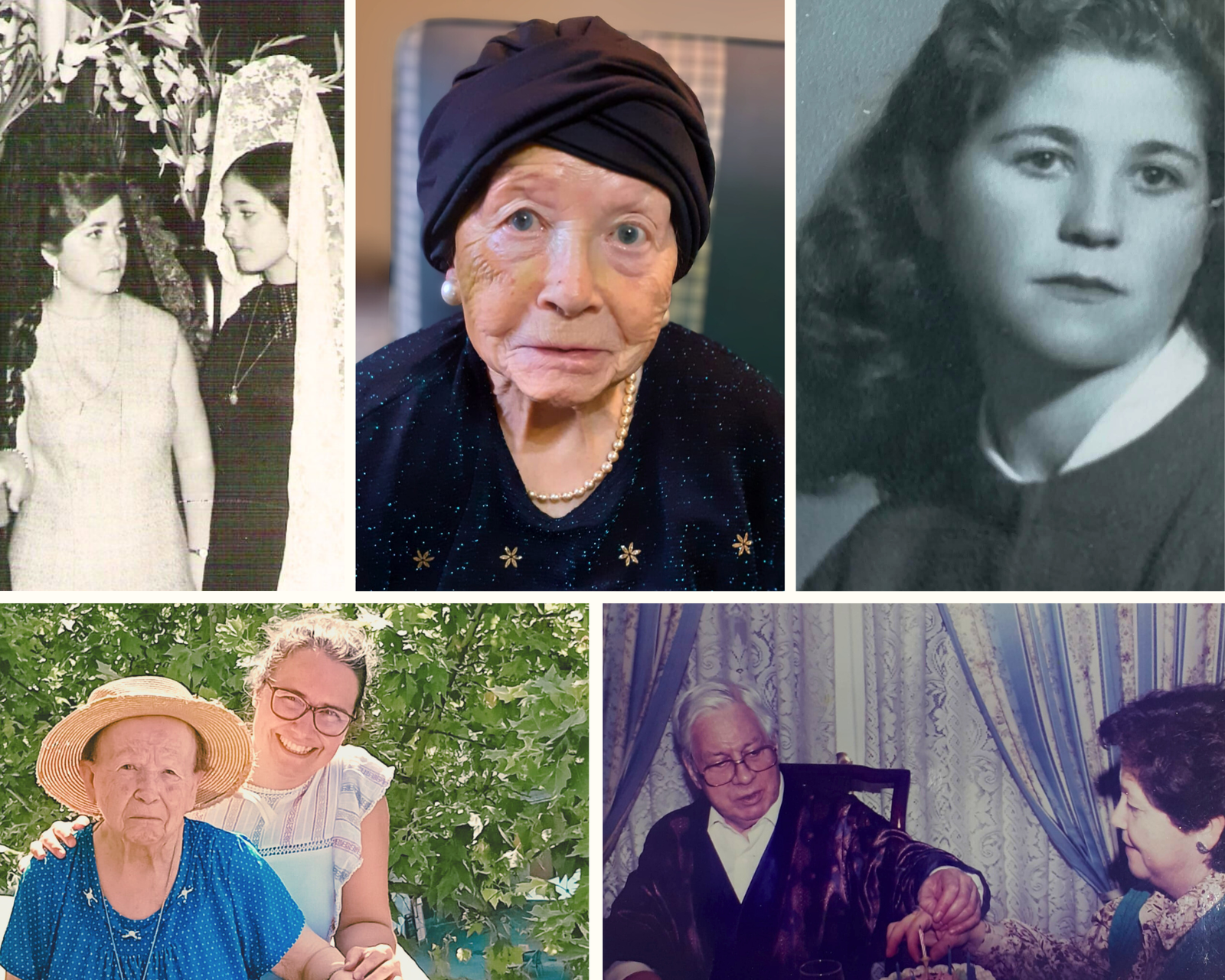
Gospel according to Saint Luke 18:1-8
Jesus told his disciples a parable about the necessity for them to pray always without becoming weary. He said, “There was a judge in a certain town who neither feared God nor respected any human being. And a widow in that town used to come to him and say, ‘Render a just decision for me against my adversary.’ For a long time the judge was unwilling, but eventually he thought, ‘While it is true that I neither fear God nor respect any human being, because this widow keeps bothering me I shall deliver a just decision for her lest she finally come and strike me.'”
The Lord said, “Pay attention to what the dishonest judge says. Will not God then secure the rights of his chosen ones who call out to him day and night? Will he be slow to answer them? I tell you, he will see to it that justice is done for them speedily. But when the Son of Man comes, will he find faith on earth?”
A simple glance toward heaven
Luis CASASUS President of the Idente Missionaries
Rome, October 19, 2025 | XXIX Sunday in Ordinary Time
Exod 17: 8-13; 2Tim3: 14—4,2; Lk 18: 1-8
In today’s Gospel reading, the surprising parable of the unjust judge is not an allegory. Of course, the judge, “who neither feared God nor respected men,” is constructed with the intention of showing a contrast, in a typically Semitic style: If even an unjust judge ends up doing justice through insistence, how much more will God, who is just and good, listen to his children!
In any case, the focus of the message is not the judge, but perseverance in prayer.
So, this parable does NOT tell us that God is like a judge who can be persuaded by persistence, but rather encourages us to trust that God hears and responds, even if it sometimes seems to take time. The widow’s persistence does not change the judge, it only forces him to take action devoid of all compassion, but our persevering prayer transforms us and keeps us open to God’s action.
The widow DOES represent all of us: we can identify with her pain, with her feeling of helplessness, and we are exhorted to imitate her in her prayer, crying out day and night.
This is what our Father Founder has always wanted to teach us when he speaks to us about the “state of prayer” or, in other words, continuous prayer. It is clear that there are very necessary forms of prayer, but we cannot practice them permanently. However, one of the clearest and most poetic descriptions of what continuous prayer should be can help us. It is what St. Thérèse of Lisieux (1837-1897) writes in her famous Story of a Soul: For me, prayer is an impulse of the heart, a simple glance toward heaven, a cry of gratitude and love, both in times of trial and in times of joy.
In its beautiful original French expression: Pour moi, la prière, c’est un élan du cœur, un simple regard jeté vers le ciel, un cri de reconnaissance et d’amour au sein de l’épreuve comme au sein de la joie.
In reality, the need to pray continually has a truly mystical motivation: it is because the Holy Spirit speaks to us day and night. This is clear in the Gospel and in the attitude of Christ himself. For example: I will ask the Father, and he will give you another Advocate, to be with you forever, the Spirit of truth… He dwells with you and will be in you (1 Jn 14:16-17). Dwelling or abiding in us clearly expresses that continuous and active presence.
—ooOoo—
The consequences of not living in continuous prayer are vividly represented in the First Reading, which recounts Israel’s battle against the Amalekites, the battle of Rephidim: As long as Moses held up his hands, Israel prevailed; but when he lowered his hands, Amalek prevailed.
In our case, the consequences are not warlike, but they are also painful. It is not only that we can sin easily, but above all that we fail to welcome and take advantage of divine forgiveness. Indeed, this forgiveness is permanent, truly continuous, for it does not refer only to a specific sin, but to our mediocrity, to our lukewarm response to grace. We always repeat that God’s love is above all merciful. This means that he loves us in the midst of our weakness and our sin… and we are always weak and sinful.
His love manifests itself above all in protecting and safeguarding the small flame of our faith: when we sin, when we are unfaithful, we cannot stop believing in Him; we do not feel that He extinguishes our faith but, on the contrary, preserves it from our clumsiness, always offering us a new opportunity, a new proof of His trust.
Even non-Christian confessions have a clear notion of the eminently merciful nature of divine love.
The following invocation appears at the beginning of the Salat, the prayer recited five times a day:
Praise be to Allah, Lord of the universe, the Merciful, the Compassionate, Sovereign of the Day of Judgment… Likewise, there is a prayer that can be said at any time of the day to ask for help, which goes like this: O Allah, You are the most Merciful of the merciful! Forgive me, guide me, and have mercy on me.
We can conclude that we truly need that mercy, which is more essential than any other that comes from men.
If we do not embrace divine mercy, sooner or later, adversity, illness, our character, or the misunderstandings we all suffer will inevitably drag us into one of these states: sadness, anger, or skepticism. These states describe well the state of the soul of those who do not pray continually. Consider these examples:
* Adam and Eve, after disobeying God, hide in shame. Their lack of dialogue with God at that moment reflects a spiritual rupture that leads them to sadness and exile.
* Cain (Genesis 4): Instead of seeking God in prayer after his offering is rejected, he is overcome by anger and kills his brother. God warns him: sin is at the door, but he does not seek communion or correction.
* The apostle Thomas (John 20:24-29) was not present when Jesus appeared to the disciples. His skepticism (unless I see… I will not believe) reflects a momentary disconnection. Jesus invites him to touch his wounds, restoring his faith.
Normally, our lack of patience leads us to become discouraged in prayer. We are even convinced that our mercy is unsurpassable; of course, we believe ourselves to be more merciful than the human beings around us and probably more than God himself. We are like someone who observes an egg about to hatch and decides to help the chick out by breaking the shell from the outside. Then the poor little animal will bleed to death or drown. We often say (or at least think) that God takes too long to respond, but the problem is that we expect a certain response, dictated by our logic, a response… that does not come.
Even when we want to be honest and well-intentioned, we lose patience with a person’s exasperating slowness, inconsiderate unpunctuality, or persistent attachment to the judgments of someone who is ignorant of the matter under discussion.
Perhaps that is why some Bible experts claim that a more appropriate translation of what we normally read in today’s text, “I tell you that he will bring justice very soon,” would be “I tell you that he will bring justice suddenly, when you least expect it.”
Providence has its own way of responding, which is sometimes very subtle, as we read in the book of Ruth.
She was a Moabite woman who was widowed and decided to accompany her mother-in-law Naomi to Bethlehem, leaving her land and her people behind. One day, Ruth went to glean in the fields “by chance” and ended up in the field of Boaz, a distant relative who later became her husband. From that union Obed was born, the father of Jesse, grandfather of King David, and therefore an ancestor of Christ. In other words, from an act of humble fidelity and a series of “coincidences,” God prepared the genealogy of the Messiah.
We do not have enough faith to trust in divine plans, for our own pain and that of others clouds our vision and our thinking. We are like the apostle John in chapter 5 of Revelation, where he weeps because it seems that no one will be able to fulfill God’s purpose or bring justice. But when he sees the Lamb taking the book from God’s hand, he understands that only Christ has the right to execute the divine plan, because He conquered through His sacrifice. As Christ says today: Will God not bring justice to His chosen ones, who cry out to Him day and night?
—ooOoo—
From a positive point of view, today’s Gospel teaches us that if, through continuous prayer, we manage to overcome sadness, anger, and skepticism, the doors of the soul will open to align us with the divine will. Let us note that this is the message of the final sentence in today’s Gospel text: But when the Son of Man comes, will he find faith on earth? This warning makes me wonder if, at Jesus’ final coming, or every time he speaks to me during the day, he finds me in a state of prayer so that I am able to unite myself with him.
In other words, those who pray continually remain in constant contact with God’s thoughts, feelings, and plans, and thus see events in a way that is increasingly similar to how He sees them. Prayer keeps us alert when conditions arise that allow something to change so that divine plans can be fulfilled.
As the Second Reading says, another consequence of continuous prayer is an apostolic act that can also become permanent. Thus, St. Paul declares to Timothy: I urge you, for the sake of his coming and his Kingdom, to proclaim the word; insist on it in season and out of season; convince, rebuke, and exhort with all patience and wisdom.
We often say that a sign of maturity in a person is their calm reaction to adversity, which means: acknowledging pain without denying it, not reacting impulsively or blaming others, and seeking meaning in the midst of chaos, rather than giving in to cynicism. For a believer, as happened to Job, mature prayer, that is, continuous prayer, not only in “special” moments, leads him to maintain his integrity and his intimate relationship with God, unlike what happened to his friends. He lived in prayer, and that is why the terrible misfortunes that befell him could not destroy his faith.
We all seek justice in life. When you feel that your rights are being violated, the instinctive response is to demand justice. We seek justice not only for ourselves, but also for our loved ones and, especially, for the most vulnerable in society.
However, let us not forget that the fullness of justice will not be realized in this world. As St. Ambrose said: What is death, after all, but the burial of vice and the flowering of goodness?
_______________________________
In the Sacred Hearts of Jesus, Mary and Joseph,
Luis CASASUS
President












